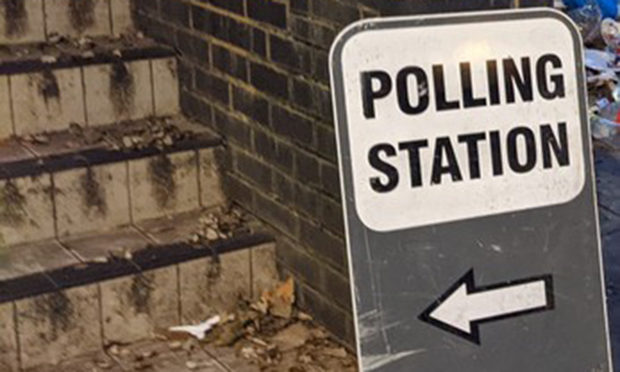Voter ID proposals could disenfranchise ‘thousands’ in Hackney, local politicians warn

Making voters show ID could disenfranchise “thousands of people” and lead to many being turned away at the polling station, politicans have warned.
Government proposals in the Elections Bill would require people to show a driving licence, passport or a new voter’s card when they show up at the ballot box.
Hackney Council told a government consultation it was worried that people without documents could lose out and inequalities could be exacerbated.
A Town Hall statement said: “Hackney Council views the voter ID proposals as another barrier to people voting, particularly for people who are less likely to vote due to a number of factors, increasing inequality in the electoral process.
“It is expected that these proposals would lead to more people being turned away at polling stations for not carrying the correct ID and less people voting due to the added effort and cost of either obtaining an ID or returning to a polling station after being turned away.”
Hackney warned it is costly to get suitable documents.
A provisional driving licence costs between £34 to £43, and although a full driving licence is free, there is a fee for a driving test.
A new 10-year adult UK passport costs between £75.50 to £95.
Hackney’s deputy mayor Anntoinette Bramble said: “Our country should be encouraging more people to take part in elections – not putting up more barriers in front of people wanting to have their say.
“Most families in Hackney don’t drive – especially our younger, Black and Asian residents – and tens of thousands of our residents don’t hold a passport.
“Put simply, these half-baked plans are an unacceptable attack on democracy and in places like Hackney will disenfranchise thousands of people from their right to vote.”
Turnout at four council by-elections in Hackney last May ranged from 33 per cent to 46 per cent.
The last council elections were in May 2018 and turnout varied from 28.9 per cent in Hoxton East and Shoreditch to 49.5 per cent in Stamford Hill West.
In the 2019 general election, 61.5 per cent of voters turned out in Hackney North and Stoke Newington, with a 60.9 per cent turnout in Hackney South and Shoreditch.
In its submission to Parliament’s public administration and constitutional affairs committee, Hackney warned: “We expect the proposed voter ID regulations to have a particularly negative impact on turnout in Hackney, broadening inequality in voter turnout. This is due to the lower levels of passport and driving licence holders in the borough, the two most common forms of photo ID.”
It is thought that 47 per cent of households in Hackney do not have a driving licence – but the figure is likely to be higher as there could be more than one person in the same home without a driving licence. Many Hackney residents do not have a car.
According to the 2011 census, 28 per cent of Hackney residents do not have a UK passport and seven per cent do not have any passport.
The council pointed out that Hackney is a diverse borough and 40 per cent of its residents are from Black and minority ethnic groups. Nationally, Black people are least likely to hold a full driving licence.
Local politicians said they are worried about the impact on young people, who are less likely to hold a driving licence.
There are also concerns that the plans could have “a negative impact” on the turnout of Gypsy, Roma and Traveller communities, who already experience low voter turnout, and on people who are homeless.
The council added that it is troubled about proposals to bring in the first-past-the-post system for electing council mayors.
Hackney first had a directly elected mayor in 2002. They are elected using the supplementary vote system, so voters pick a first and second choice.
In 2018, 36.9 per cent of Hackney voters cast a vote in the mayoral ballot.
The council warned that first-past-the-post “often leads to ‘minority rule’, with significant positions handed to people with less than 50 per cent of the vote, undermining the legitimacy of elected officials”.
It added: “This question of legitimacy and the requirement for a broad-based mandate is especially important where, as in Hackney, there is a directly elected mayor. The council believes all Hackney residents should have equal say on who is elected into positions of power.”
